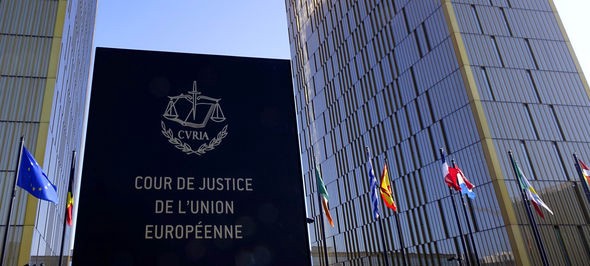On 1 August 2022, the Court of Justice of the European Union (CJEU) gave a ruling on a preliminary request on the case C‑19/21. The case concerned I, an Egyptian national who applied for international protection in Greece when he was still a minor and indicated that he wished to be united with S, his uncle who was legally resident in the Netherlands and was able to care for him. Following this request, the Greek authorities submitted a request to the Netherlands authorities to take charge of him; however, the State Secretary refused the request. I and S objected to the decision that refused the request to take charge, but this was found inadmissible on the ground that the Dublin III Regulation does not provide for the possibility for applicants for international protection to challenge a decision refusing a take charge request. I and S brought an action for annulment of that decision before the District Court of the Hague as they claimed that they had the right to bring such judicial proceedings.
As the main question in the proceedings, the referring court asked the CJEU whether Article 27 of the Dublin III Regulation (no. 604/2013) or Article 47 of the Charter of Fundamental Rights of the EU provide the unaccompanied minor and his family member with an effective remedy before a court against the Member State’s refusal of the request to take charge. The CJEU confirmed that Article 27(1) of the Dublin III Regulation does not exclude the possibility of challenging a decision that refuses a take charge request and that one of the objectives of Dublin III is to protect the applicants through judicial safeguards. In this line, the Court further held that in order to be able to plead an infringement of the right and thus benefit from this effective protection of rights, an unaccompanied minor applicant must be able to exercise a judicial remedy, not only where the requesting Member State adopts a transfer decision, but also where the requested Member State refuses to take charge of the person concerned.
Furthermore, the CJEU affirmed that the interest which an unaccompanied minor may have in being united with members of their extended family for the purposes of the examination of their application for international protection must be regarded as being protected by the provisions of the Dublin Regulation and the Charter. As an additional consideration, the Court pointed out that the EU legislation is not intended to sacrifice the judicial protection enjoyed by applicants for international protection in order to expedite the processing of the applications, in particular when it is a matter of ensuring that specific procedural safeguards for the protection of unaccompanied minors are respected.
For the above-mentioned reasons, the Court concluded that Article 27(1) of the Dublin III Regulation, read in conjunction with Articles 7, 24 and 47 of the EU Charter of Fundamental Rights requires the Member State to which a take charge request has been made to grant a right to a judicial remedy against its refusal decision to the unaccompanied minor who applies for international protection, but not to the relative of that minor.

